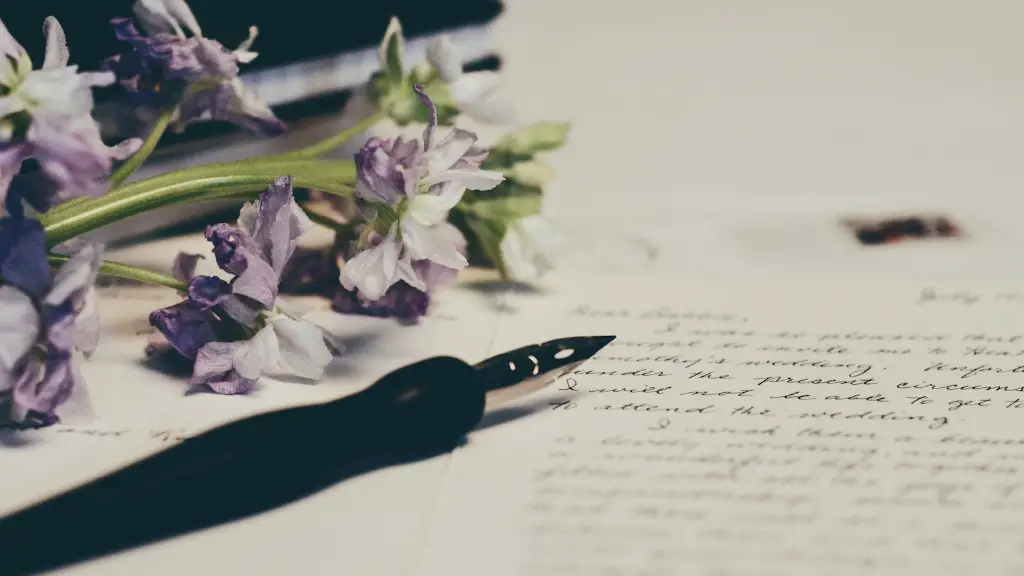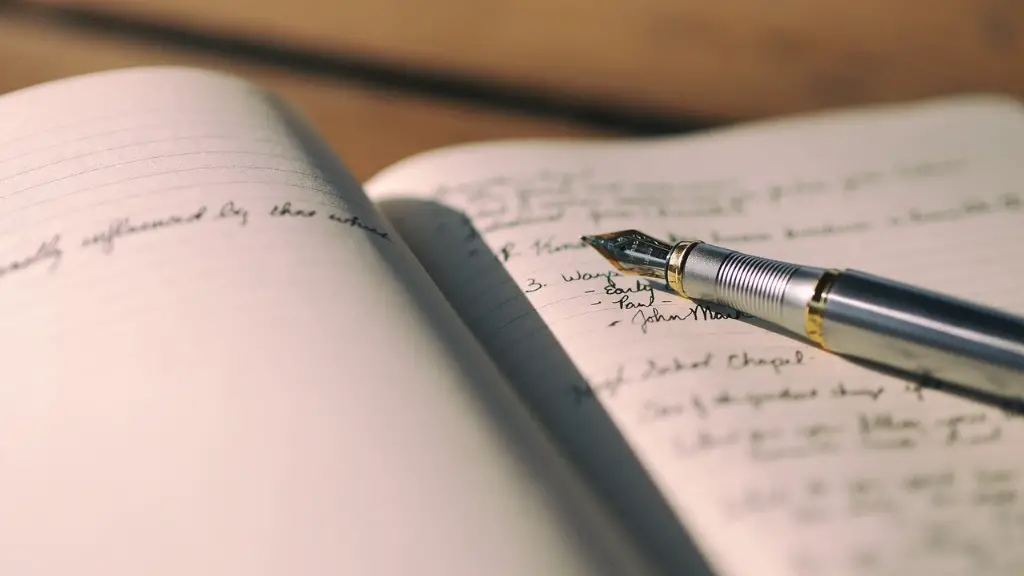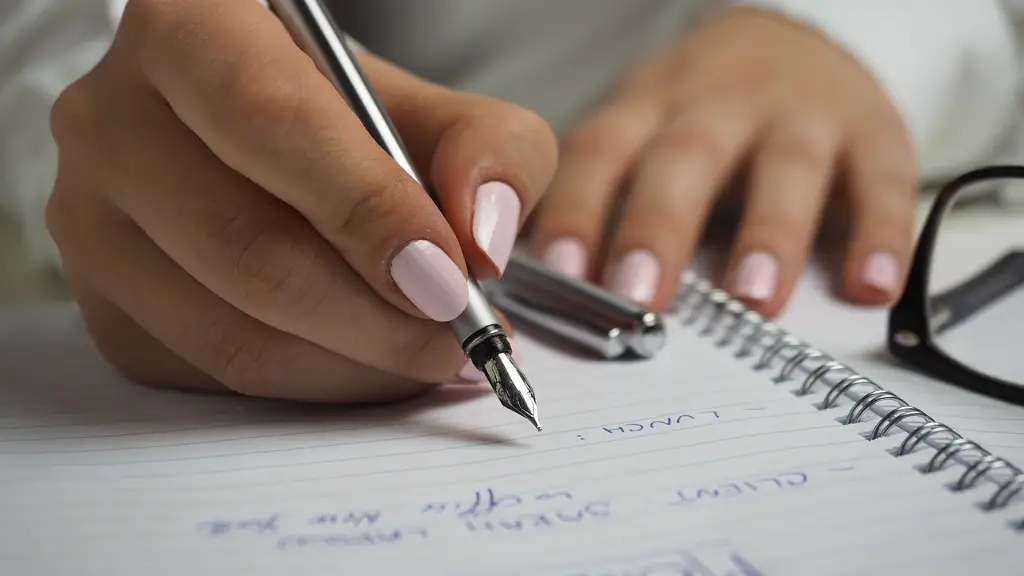Overview of Poetry Appreciation
The appreciation of poetry involves learning how to ‘read’ a poem; learning to pay attention to its structure, form, language and content. Reading a poem is not the same as reading prose; it is a more active process that requires an often unique approach to reading literature. Establishing an appreciation of poetry involves investing oneself in the poem, connecting personally to its words and ideas, and understanding the subtleties which flow beneath the main text.
The Meaning Behind Poetry Appreciation
When it comes to the appreciation of poetry, there are many varied interpretations, as each reader brings his or her own individual perspectives to the poem; different backgrounds, cultural, social and ideological circumstances may affect these interpretations.
For some readers, the meaning of a poem lies in the literal interpretation of its words and the repetition of forms and sounds which serve to build a narrative. For other readers, the poetic element of the poem lies in its structure, its delivery and choice of language, melding together to create a very different kind of narrative.
The Use of Language in Poetry Appreciation
The language used within a poem further serves to create the meanings associated with it. Different meanings and perspectives can be derived from the same poem depending on the wording and sentence structure used. It is impossible to appreciate poetry without entwining its words together, therefore a thorough knowledge of language is required.
Language can be used in poetic ways. In addition to words, similes and metaphors, techniques such as alliteration, onomatopoeia, hyperbole, personification, and assonance are often employed. Additionally, a poet may use rhythm and rhyme in order to convey a particular meaning.
Approaching Poetry Appreciation
Any approach to poetry appreciation requires both active engagement and careful consideration. A poem should be read several times, both quickly and slowly as it allows for a better understanding of its themes and styles. Additionally, reading aloud can also be beneficial as it allows for a better understanding of the structure, rhythm and flow of the poem.
In addition to reading the poem, it is also necessary to take some time to consider the poem’s context. Situating the poem within its wider literary, social, philosophical and political context can further enrich interpretation of a text, allowing for a number of diverse and differing interpretations.
Creative Writing to Improve Poetry Appreciation
Creative writing can also be beneficial in developing an appreciation of poetry as it allows one to explore the complexities of language, its limitations and its potentiality. Creative writing activities, including free writing, imitation, journal writing, and storytelling can allow a more flexible and open approach to the appreciation of a poem, while generating a deeper understanding of poetry overall.
Additionally, keeping a poetry journal can be beneficial in cultivating the appreciation of poetry. Writing down the initial thoughts and feelings sparked by a poem and returning to them at a later time allows for furthering the understanding of a poem and its layers of meaning.
Exploring Poetic Criticisms in Poetry Appreciation
Reading poetry critiques and reviews can also help to foster an appreciation of poetry. With the array of journals, books and online reviews, it is fairly easy to find poetic criticism of a particular poem or poet. Critiques and reviews offer an intellectual integration of poetry and its relevance in our modern societies, allowing for further appreciation and understanding.
In addition to reading critiques and reviews, it is also helpful to watch poetry readings and performances. Attending poetry readings and performances allows the viewer to experience poetry beyond reading alone. Being able to listen to a poem’s sound and rhythm, as well as watch the body language of the reader are important elements in learning how to appreciate a poem.
Angling Poetry Appreciation
When approaching a poem, it is important to maintain an open mind. Establishing a connection between oneself and the poem prior to engaging with it can be beneficial in understanding it. Analyzing a poem through a particular angle – examining the poem’s form, its metaphorical content, the techniques used – can further enhance the appreciation of a poem.
Keep in mind that usually not all lines of a poem need to be understood in order to get the gist of a poem. It is unnecessary to explicitly understand every single word and sentence, providing that the reader has developed an overall understanding of the poem’s main themes. Approaching the poem with an angle allows for a thorough interpretation and appreciation of the poem.
Drawing on Cultural Aesthetic in Poetry Appreciation
To develop a fuller appreciation of a poem, one should also consider the poem’s cultural context and aesthetic. Investigating the context in which the poem was written – the era, geographical location and circumstances – can offer a more complete understanding of a poem’s intent, inspiring new and possibly divergent interpretations.
Having knowledge of the poet’s influences and influences upon, or being familiar with the movements of the time in which the poem was written can further build an appreciation and understanding of the poem. Gaining an understanding of the period in which the poem was written and the social-cultural setting are important in relation to appreciating a poem and its meaning.
Exploring the Historical Timeline of Poetry Appreciation
In order to fully appreciate a poem, it can also be helpful to gain a basic understanding of the genre in which it belongs and the history of its evolution. Studying the different forms and styles of poetry – episodic, rhymeschemes, sonnets, free verse, etc. – can lead to a better understanding of structure, purpose and genre.
Gaining an awareness of when a particular poem was written in relation to the poet’s oeuvre, can further lead to a better understanding of the poem. Using the available resources, researching the origins of a poem or its author, or studying biography and autobiography can be highly beneficial in relation to seeing the poem from different angles.
The Nature of Poetry Appreciation
When trying to establish an appreciation of poetry, it is important to keep in mind that poetry cannot be understood in visible terms only. Poems often require multiple interpretations. As a result, there is no correct or incorrect response to a poem. Different interpretations and responses stem from individual’s own perspectives and backgrounds, leading to divergent readings of the same poem.
Poetry appreciation requires active reading and participation. Meaningful engagement between the reader and the text is essential in order to understand the poem’s poetic elements, nuances and context, while fostering an appreciation of poetry.




